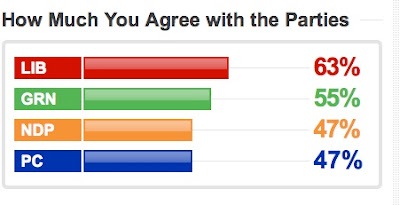What women can learn about feelings from men who won't talk about feelings
"I have no idea what is going on in there."
At one point or another, most women will say something like that to a man. And it's such a commonplace observation to say that women are in touch with feelings and that men aren't that it may seems ludicrous to suggest that men are, in fact, better at managing their feelings than women.
And yet the measurable evidence is unequivocal. Women are far more likely to need therapy than men. Women are far more likely to suffer from depression than men. Women suffer from far more stress-related illnesses.
Women are certainly better judges of how to respond to and respect other people's feelings but women, especially young women, manage their own feelings the way teenage boys drive cars. They are far too confident in their ability to handle everything that comes at them and they drive too fast and take too many chances.
In order to draw out some of the differences in the ways men understand feelings, let me give you a trivial example of a trick that lots of guys use to gauge women's feelings. It is a trick and it may offend you but is so common that I'm tempted to say that every single heterosexual guy in the history of the universe has used it. It's probably been used on you. You've certainly seen it happen.
Here goes. A couple are talking. They have been a couple for a while. Maybe they are all alone and maybe they are with others; it doesn't matter the trick works either way. And at some point the guy makes a suggestive remark and the woman responds.
That's the whole trick.
Now most people watch the woman when this happens but force yourself to watch the man the next time you see it. If she reacts badly, you'll see disappointment. If she reacts positively, you can see him deciding that this weekend is looking pretty good after all. Either way, it will hit you that the woman probably doesn't have a clue what really just happened or why.
Okay, that's pretty simple and even crude. What does it tell us us about the way men understand feelings?
First of all it tells us that men think observing your behaviour is a better guide to figuring out how you are feeling than what you tell us. Does that offend you? It shouldn't because it's true and you already know it's true. You see it in other people all the time. People (both women and men) are not reliable witnesses to their own feelings.
Your feelings aren't something you see when you "look deep inside yourself" they are the lens that you see everything through. We only have a vague idea of how much that lens is or is not distorting what we are seeing. When you are feeling impatient there is a very good chance you don't know that. From your perspective, other people are being stupid and inefficient. When you are in the mood for love you don't necessarily notice anything about yourself. From your perspective, the suggestive remark he has just made is clever and funny even though you'd hate the exact same remark if you weren't ready to be aroused.
Second, it tells us that feelings change. The same woman who says, "Why do you say things like that when you know it disgusts me," on Friday, will respond with a devious smile and an equally suggestive reply of her own next Wednesday.
Finally, it tells us that we can change our feelings. What guys do is figure out what your feelings are and then modify ours to fit. We don't do this perfectly. We'd rather you responded positively to the suggestive remark every time but we can swallow our disappointment and then we can start working up our enthusiasm to do something else.
What can you take away from this?
Most trivially, you can see from the first point why men hate answering questions about our feelings. We try to figure out what your feelings are right now rather than asking you and we expect you to try to figure us out rather than asking. We also value your independent judgment about what you can figure out about our feelings (provided it's given in a sensitive way).
We can see that you like sitting around talking about feelings but we don't think it accomplishes any more important than our sitting around talking about sports does.
From the second comes what is perhaps the most important lesson: human feelings change all the time. You don't learn any deep truths about other people or about yourself from talking about feelings. That's like deciding whether you'd like the climate in Denver based on the weather report as of 4 o'clock on a random Tuesday. It's not just that the weather report is often wrong, it's that we have no way of knowing whether this report is typical or unusual weather.
The last tells us something terribly important about love. The feelings of love are just a symptom. The real spring of love is the commitment you make and nurture. When in doubt go back to the promises you have made and remake them rather than trusting how you feel right now as a measure of your love. Then use that commitment to change your feelings.
And you can do that. Your feelings will follow your behaviour if you are consistent and persistent about it.
"I have no idea what is going on in there."
At one point or another, most women will say something like that to a man. And it's such a commonplace observation to say that women are in touch with feelings and that men aren't that it may seems ludicrous to suggest that men are, in fact, better at managing their feelings than women.
And yet the measurable evidence is unequivocal. Women are far more likely to need therapy than men. Women are far more likely to suffer from depression than men. Women suffer from far more stress-related illnesses.
Women are certainly better judges of how to respond to and respect other people's feelings but women, especially young women, manage their own feelings the way teenage boys drive cars. They are far too confident in their ability to handle everything that comes at them and they drive too fast and take too many chances.
In order to draw out some of the differences in the ways men understand feelings, let me give you a trivial example of a trick that lots of guys use to gauge women's feelings. It is a trick and it may offend you but is so common that I'm tempted to say that every single heterosexual guy in the history of the universe has used it. It's probably been used on you. You've certainly seen it happen.
Here goes. A couple are talking. They have been a couple for a while. Maybe they are all alone and maybe they are with others; it doesn't matter the trick works either way. And at some point the guy makes a suggestive remark and the woman responds.
That's the whole trick.
Now most people watch the woman when this happens but force yourself to watch the man the next time you see it. If she reacts badly, you'll see disappointment. If she reacts positively, you can see him deciding that this weekend is looking pretty good after all. Either way, it will hit you that the woman probably doesn't have a clue what really just happened or why.
Okay, that's pretty simple and even crude. What does it tell us us about the way men understand feelings?
First of all it tells us that men think observing your behaviour is a better guide to figuring out how you are feeling than what you tell us. Does that offend you? It shouldn't because it's true and you already know it's true. You see it in other people all the time. People (both women and men) are not reliable witnesses to their own feelings.
Your feelings aren't something you see when you "look deep inside yourself" they are the lens that you see everything through. We only have a vague idea of how much that lens is or is not distorting what we are seeing. When you are feeling impatient there is a very good chance you don't know that. From your perspective, other people are being stupid and inefficient. When you are in the mood for love you don't necessarily notice anything about yourself. From your perspective, the suggestive remark he has just made is clever and funny even though you'd hate the exact same remark if you weren't ready to be aroused.
Second, it tells us that feelings change. The same woman who says, "Why do you say things like that when you know it disgusts me," on Friday, will respond with a devious smile and an equally suggestive reply of her own next Wednesday.
Finally, it tells us that we can change our feelings. What guys do is figure out what your feelings are and then modify ours to fit. We don't do this perfectly. We'd rather you responded positively to the suggestive remark every time but we can swallow our disappointment and then we can start working up our enthusiasm to do something else.
What can you take away from this?
Most trivially, you can see from the first point why men hate answering questions about our feelings. We try to figure out what your feelings are right now rather than asking you and we expect you to try to figure us out rather than asking. We also value your independent judgment about what you can figure out about our feelings (provided it's given in a sensitive way).
We can see that you like sitting around talking about feelings but we don't think it accomplishes any more important than our sitting around talking about sports does.
From the second comes what is perhaps the most important lesson: human feelings change all the time. You don't learn any deep truths about other people or about yourself from talking about feelings. That's like deciding whether you'd like the climate in Denver based on the weather report as of 4 o'clock on a random Tuesday. It's not just that the weather report is often wrong, it's that we have no way of knowing whether this report is typical or unusual weather.
The last tells us something terribly important about love. The feelings of love are just a symptom. The real spring of love is the commitment you make and nurture. When in doubt go back to the promises you have made and remake them rather than trusting how you feel right now as a measure of your love. Then use that commitment to change your feelings.
And you can do that. Your feelings will follow your behaviour if you are consistent and persistent about it.





